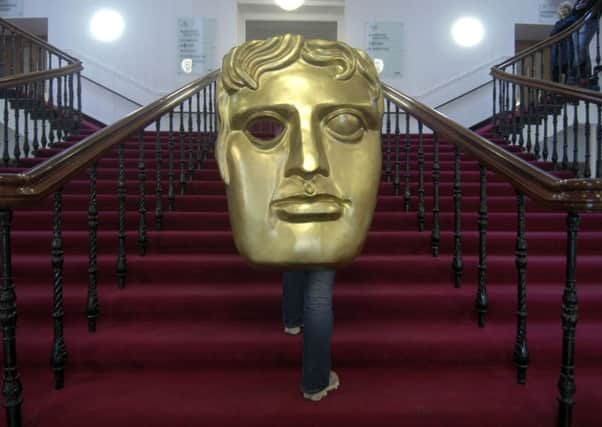Brian Ferguson: Bafta Scotland’s rewritten rules


Of the two, nobody is going to pretend that the Bafta Scotland Awards are anywhere near the scale of the MTV EMAs. After all, the former event was unable to muster any television coverage, while the music industry showpiece was seen by an estimated 500 million people.
But the “McBaftas” succeeded where MTV had failed, in delivering most of its nominees – and all its major winners – on the red carpet. David Tennant, James McAvoy, Shirley Henderson and rising star Sophie Kennedy Clark all made time in their schedules to attend.
Advertisement
Hide AdAdvertisement
Hide AdHowever it was not all sweetness and light at the Scottish Baftas. The three awards for prison drama Starred Up – for best film, director and writer – were not greeted with universal approval.
I can understand the disappointment of those involved in both Sunshine on Leith and Filth, two of the most successful Scottish films of the last 20 years, after they won just one award between them, for McAvoy’s turn in Filth. In his moment of glory, the actor admitted it would have been “well embarrassing” to lose out to an English actor (Starred Up’s lead Jack O’Connell), for a film made in Belfast.
CONNECT WITH THE SCOTSMAN
• Subscribe to our daily newsletter (requires registration) and get the latest news, sport and business headlines delivered to your inbox every morning
On the face of it he and the team behind Filth, who I understand were privately rather miffed, have a point. Yet Bafta Scotland’s rules were changed a few years ago to ensure that film-makers working outside Scotland, but within the UK, like Starred Up’s director David Mackenzie, could still be recognised. It is this shift that allowed Tennant, Henderson and Kennedy Clark to be honoured this year. It also masks the paucity of productions in Scotland.
But Gillian Berrie, Starred Up’s producer and the industry voice of film-makers in Scotland over the last year, made clear her disappointment that another of her films, Under The Skin, had been ruled ineligible.
Based on a best-selling book written and set in Scotland by Michel Faber, Jonathan Glazer’s sci-fi movie provided a boost for the Scottish film industry, with lead actress Scarlett Johansson spending weeks filming all over the country. Its exclusion just seems bizarre.
Like Starred Up, Sunshine on Leith and Filth, Under the Skin was eligible for the maximum public grant for a film being made in Scotland, but not the industry’s flagship honours.
There is not the space here to examine the nuances and small print of the application processes for Creative Scotland funding and Bafta Scotland’s awards. But if a film is considered “Scottish” enough to merit significant support from the national arts agency, then should it not also be eligible for a Scottish Bafta?
SCOTSMAN TABLET AND IPHONE APPS